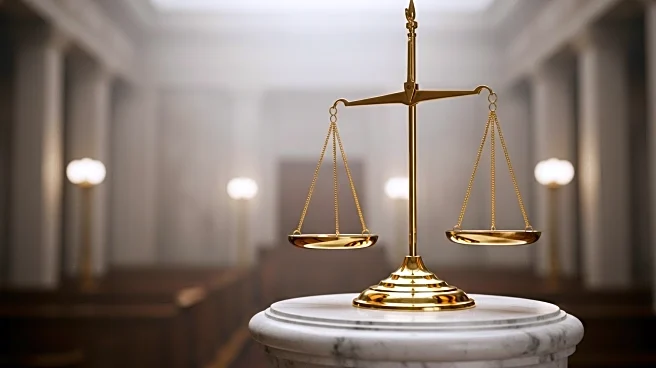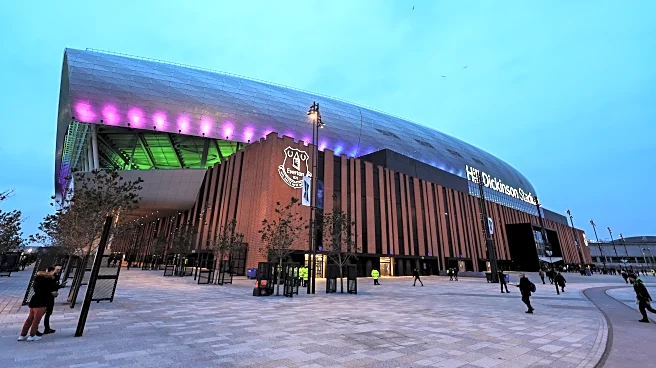What's Happening?
Mexico's first elected Supreme Court is set to be seated, marking a significant shift in the country's judicial system. The court, led by Hugo Aguilar, a lawyer known for defending Indigenous rights, consists mostly of new justices with limited high court experience. The concept of electing judges was introduced by former President Andrés Manuel López Obrador, aiming to increase accountability and reduce corruption. However, critics argue that this approach risks politicizing the judiciary. The election process was intended to be nonpartisan, but instances of candidates being linked to the governing party were reported. The Supreme Court has been a counterbalance to López Obrador's Morena party, which holds majorities in Congress. The court faces nearly 1,400 pending cases, including issues like mandatory pretrial detention, abortion access, transgender rights, and mining concessions.
Why It's Important?
The independence of Mexico's Supreme Court is crucial for maintaining a balanced political system and ensuring that judicial decisions are based on law rather than political influence. The court's rulings on key issues such as pretrial detention and abortion access could have significant implications for human rights and legal standards in Mexico. The outcome of these cases will affect various stakeholders, including those in the mining industry and individuals advocating for transgender rights. The court's ability to assert its independence will be closely watched by international bodies and human rights organizations, as it could set a precedent for judicial elections in other countries.
What's Next?
The new Supreme Court will need to address the pending cases, with particular attention to those that have drawn international criticism, such as mandatory pretrial detention. The court's decisions will likely influence Mexico's legal landscape and could lead to changes in state laws regarding abortion and transgender rights. Stakeholders, including political leaders, human rights groups, and industry representatives, will be monitoring the court's actions closely. The court's ability to maintain independence and avoid partisan rulings will be critical in shaping Mexico's judicial future.
Beyond the Headlines
The shift to an elected Supreme Court raises questions about the long-term implications for judicial independence and the potential for increased political influence in legal decisions. The court's handling of cases related to human rights and industry regulations will be pivotal in determining its role as a check on government power. The broader impact on Mexico's political system and its alignment with international legal standards will be significant.












